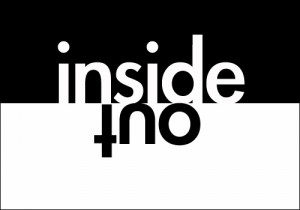Turning communications careers inside out: the generalist emerges ...
Okay, you know who you are, Mr. or Ms. Internal or External Communications expert. You love what you do on one side of the internal vs. external communications fence. You view the ?other side? as boring, limited, and/or frightening.? You?re perfectly happy doing what you?re doing and want to keep doing just that for the f
What you may not see (yet) is that communication leaders increasingly want ? and need ? communications generalists. And that means they want professionals with increasingly deeper competencies on both sides of the house. ?It can really be frustrating,? a chief communications officer recently told me. ?In some cases, we have internal comms leaders who are afraid of PR. In others, we have media gurus who don?t think internal comms is ?sexy? enough to keep their interest.?
What both of those kinds of employees are missing is a clear and emerging trend toward the development of communications generalists. So, why the push on developing communications skills inside and out? CCOs pretty much across the board say three things:
?
It helps the function: having communications professionals with increasingly deeper skill sets helps the function plan and execute faster and more effectively. As generalists understand how to plan for the range of stakeholders inside and out, they think in more integrated ? and effective ? ways. As demands on the function increase, one of the best ways to leverage existing headcount is to have those headcounts work smarter through mastering a range of communication disciplines.
?
It helps identify better current and future leaders: as professionals develop skills for internal and external communications concurrently, it begins to sort out better current and future leaders, including future CCOs (their successors). Picking a senior leader for a global communications function who has tons of media and issues management experience ? but never touched internal communications ? is going to be a much harder sell. Conversely, an employee engagement specialist who has never done financial or media communications will be an equally tough argument to make.
?
It helps retain talent: not surprisingly, the best and brightest want to be challenged, and that includes switching gears from external to internal communications or vice versa. They tend to see longer runways for their own growth and development, which helps retention.
?
Perhaps most important in my recent conversations with CCOs is this: most say the train has left the station already and there?s no turning back.? New talent is evaluated, in part, with an eye toward their openness to learning across all communication disciplines. Advancement increasingly is reserved for those who demonstrate willingness to learn both internal and external communications disciplines, and who show how that knowledge drives results in their work. And when restructuring activities are afoot, the fewer roles available are going not to the specialists, but to the generalists.
So a parting word to the wise communication professional: If you?re already diving into both ends of the internal and external communications pool, you?re in good, deep waters that will give you many more options for growth in the years ahead. For the rest, open yourself to the world of the generalist. You?ll leave the relatively shallow waters you?re in, and have an infinitely greater vista ahead.
Posted in Destinations
makana makana gloria cain gloria cain kandi burruss occupy portland occupy portland

0টি মন্তব্য:
একটি মন্তব্য পোস্ট করুন
এতে সদস্যতা মন্তব্যগুলি পোস্ট করুন [Atom]
<< হোম